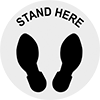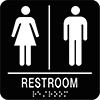Filter by
Message Type
Message
Height
Width
Accident Prevention Message Type
Message Contains
Export Control Classification Number (ECCN)
DFARS Specialty Metals
Visibility
Thickness
Specifications Met
For Manufacturer
About Accident Prevention Signs
More





































































